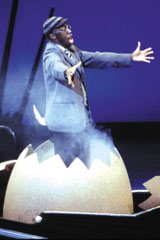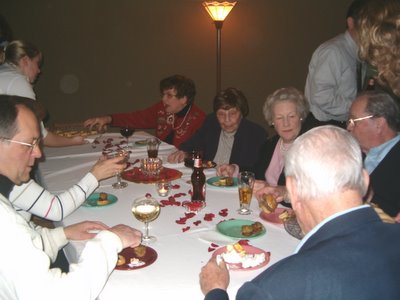It is spring, finally, real spring, and I am frustrated.
Six springs ago I neglected the garden to concentrate on campaigning for a millage to renovate and expand our local K-12
Leland Public School. That particular millage failed but the campaign set the stage to pass a similar millage a few years later and now we have a beautiful, up-to-date school building that serves our kids and the community well while preserving our status as the least-taxed school district in the county.
Winter and spring of 2004 the state budget crisis prompted Governor Granholm to propose axing Cooperative Extension and the Agriculture Experiment Stations from the state budget. It took a campaign of letter writing, phone calls and visits with state legislators to bring the people in Lansing to their senses and save our
4-H programs,
Ag Research and Advice programs,
Master Gardener Program, as well as programs to help low income people manage household finances, to help seniors get proper nutrition, and on and on. Another year of gardening neglect; you can see it in the currant bush that has gone without pruning.
This year I feel like I am playing that old arcade game Whack-a-Gopher. In the game, your quarter buys you a chance to hold a big wooden mallet in front of a table that has several holes in it. Everytime a stuffed gopher sticks its head up out of the hole you whack it with the mallet. At first it is easy and fun, but as time goes on the gophers come faster and sometimes two or three at a time. You can whack a lot of gophers for a quarter, but in the end you can never get them all.
In community version of Whack-a-Gopher, budget crisises pop up one after the other, prompting the concerned citizens to mount one campaign after another to save the underpinnings of the lives we lead. This spring we have reached the accelerated portion of the game, as school funding is threatened in the state budget,
expenditures for Extension, recycling, Family Court, even the dog catcher are being attacked in the county budget , and new federal requirements from the No Child Left Behind Act put new, expensive requirements on our public schools.
Six years ago we were working to build a new school, to improve our community. Now we are asking such ugly questions as "Can we afford to have a school music program next year?" In this small community we are already avoiding duplication of services and leveraging paid staff with an army of dedicated volunteers. There is just not a lot of fat to cut.
Clearly there are too many gophers to whack one at a time. We cannot win this game, because the game itself is rigged. Somehow along the way we have accepted the premise that all taxation is evil, that we can enjoy the benefits of a caring community without actually paying for it.
Caring community? How about a functioning community!
I come from a long line of taxpayers. If I told you that both of my grandfathers made modest fortunes because people weren't afraid to pay taxes, you might think that I come from a family of bureaucrats. In fact both of my grandfathers were engineers.
Grandpa Lee was a civil engineer in western New York. He designed many taxpayer funded projects, including part of the New York State Thruway and a regional water system for Niagara and Orleans counties.
Grandpa Gord was a mechanical engineer with AC Delco and GM. He held many patents, including the design for the camshaft-driven fuel pump, the device that replaced the unreliable gravity fed system on older cars like the Model T. While he invented a design that would allow for faster cars that were reliable for great distances, the invention would have been worthless if the public was not willing to fund roads that actually went somewhere. (If you read Gord's biography, you will see that he benefited from an exceptionally good public school education. He never forgot this. Even when he couldn't remember much at all anymore he would tell me about his good education and that he had paid his taxes.)
Our parents and grandparents paid taxes because they were willing to invest in the things that built stronger communities and that enhanced the world for future genrations. At the Extension Council meeting this week I heard County Commissioner Mary Tonneberger tell us that a half mil tax hike -- about $50 per household -- would pay for the services that are on the county chopping block but that the county commissioners were not even considering asking the public for a tax increase. Presumably they are scared of the public reaction. Earlier in the meeting, Don Coe of
Black Star Farms had told us of adding a little apple brandy to his maple syrup during the final stage of boiling to make an interesting apple-maple syrup. I felt like suggesting that he provide the county commissioners with a shot of apple brandy before their meetings to give them a little courage.
Both of my grandfathers told me that my generation didn't have the brains or guts to accomplish what they had done. I was insulted at the time, but I'm beginning to think they were right.
More on this later. The chickens are anxious for me to pull some weeds for them to eat, "chicken salad" as my mom called it when she was little.










